Indigenous Governance Database
language immersion
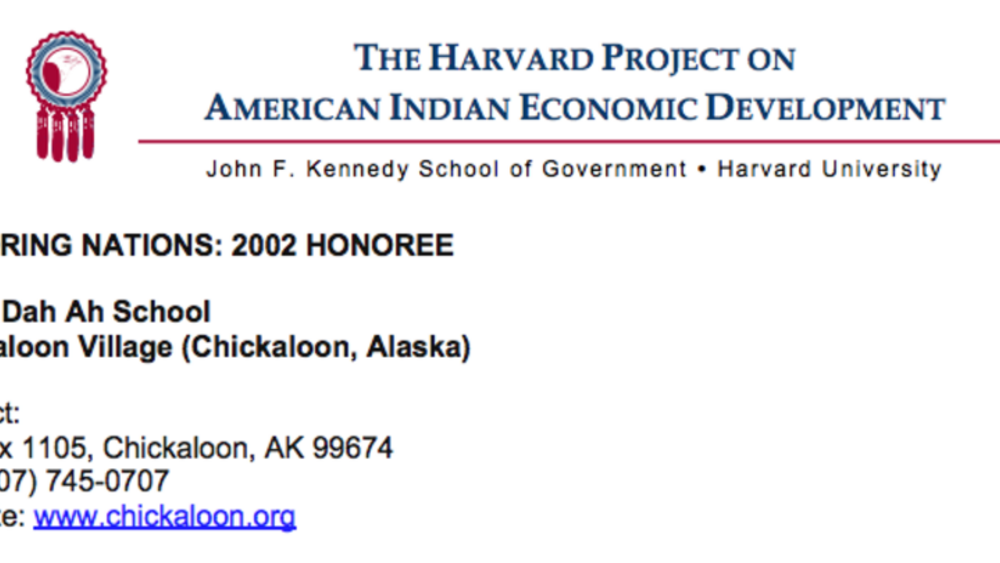
Chickaloon Village: Ya Ne Dah Ah School
Dedicated to giving community youth the skills necessary for functioning in a modern world while retaining and facilitating traditional knowledge and practices, the Ya Ne Dah Ah is Alaska’s only tribally owned and operated full-time primary school and day care facility. Located in a one-room…
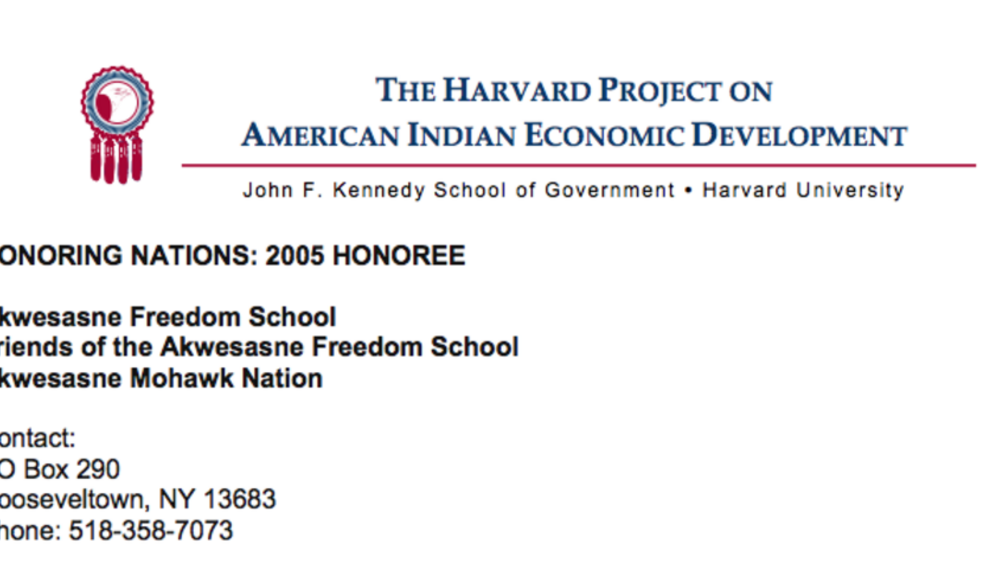
Akwesasne Freedom School
In 1979, the Akwesasne Freedom School took form out of the Mohawk struggle for self-determination and self-government. It is characterized by a deep commitment to the maintenance of Mohawk identity. Students in this pre-kindergarten through 8th-grade language immersion school begin and end each…
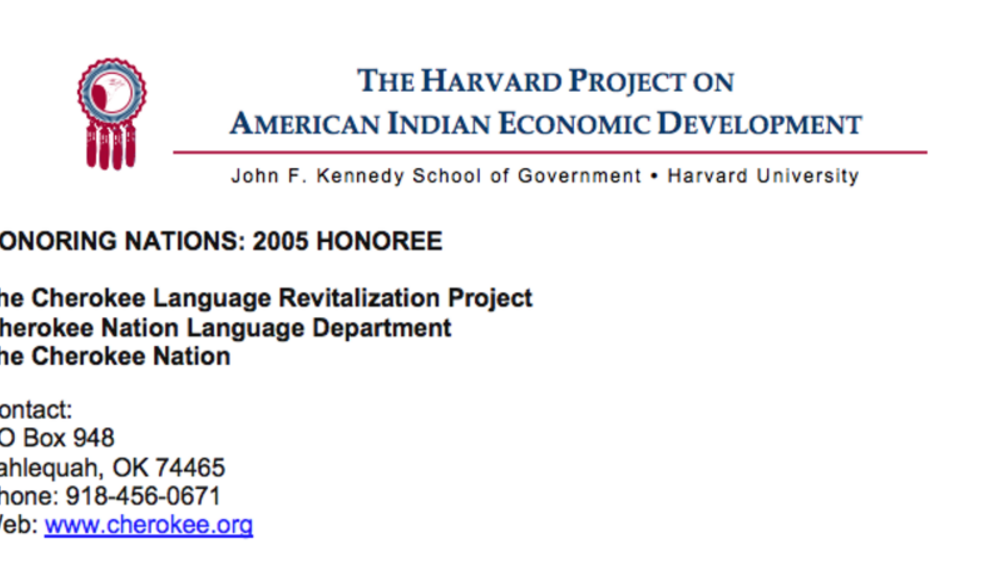
Cherokee Language Revitalization Project
In 2002, the Cherokee Nation carried out a survey of its population and found no fluent Cherokee speakers under the age of 40. The Cherokee Principal Chief declared a "state of emergency," and the Nation acted accordingly. With great focus and determination, it launched a multi-faceted initiative…
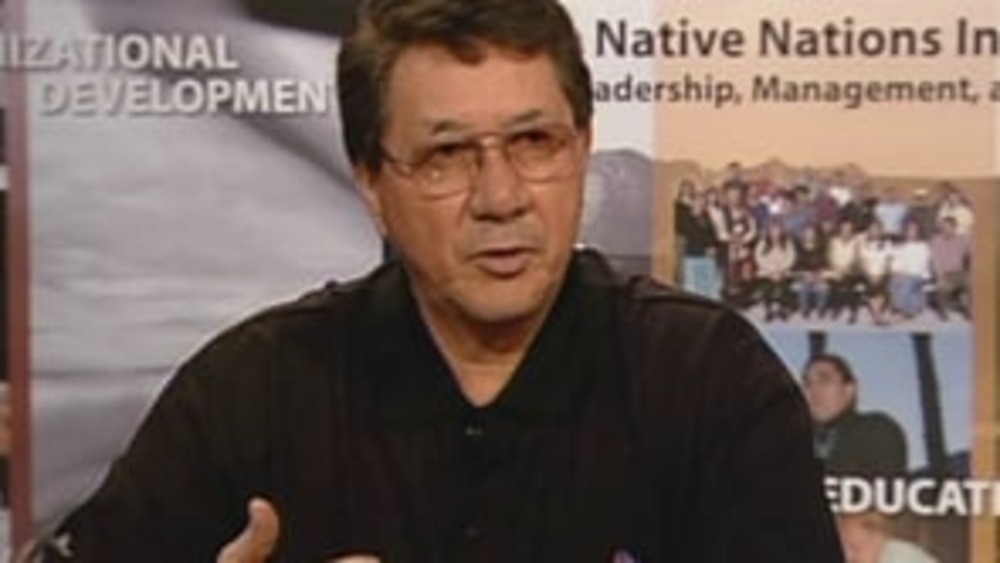
NNI Indigenous Leadership Fellow: Michael Kanentakeron Mitchell (Part 1)
Grand Chief Michael Mitchell of the Mohawk Council of Akwesasne provides an overview of the nation-building work his nation has engaged in over the past four decades, from its decision to move away from the Indian Act to its systematic development of capable governing institutions designed to…
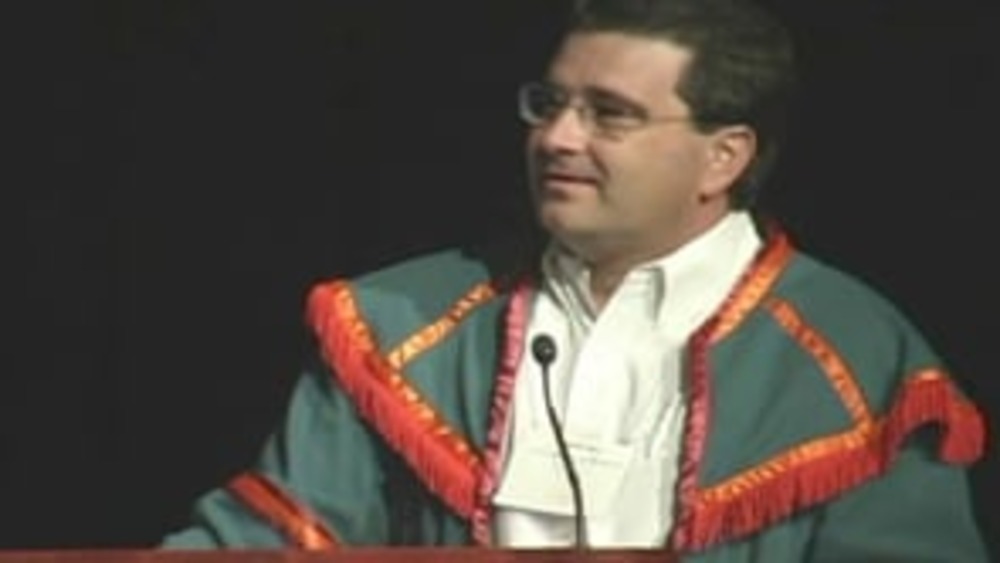
Honoring Nations: Dusty Delso: Cherokee Language Revitalization Project
Dusty Delso presents an overview of the Cherokee Language Revitalization Project to the Honoring Nations Board of Governors in conjunction with the 2005 Honoring Nations Awards.
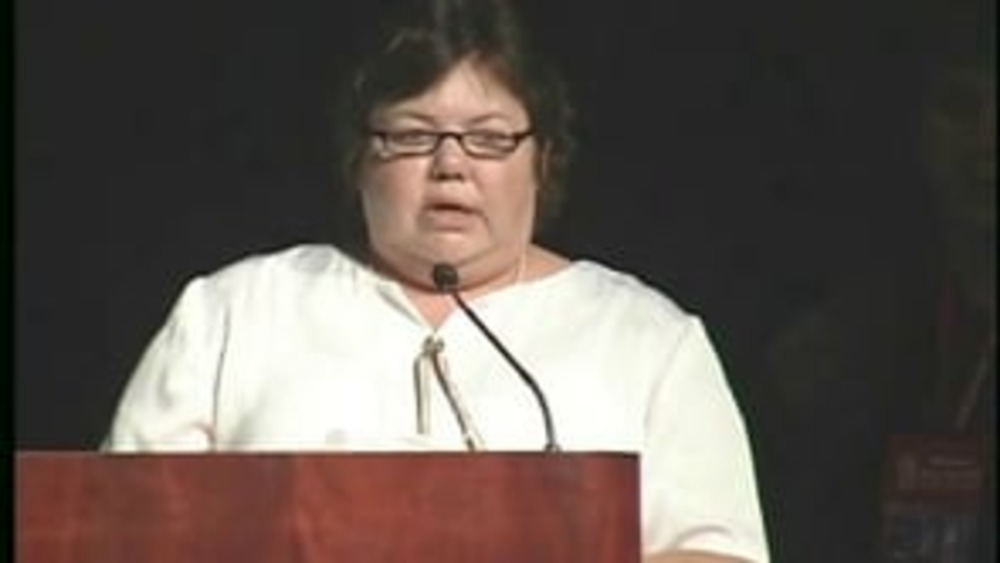
Honoring Nations: James Ransom and Elvera Sargent: The Akwesasne Freedom School
Elvera Sargent and James Ransom from the Sain Regis Mohawk Tribe present an overview of the Akwesasne Freedom School to the Honoring Nations Board of Governors in conjunction with the 2005 Honoring Nations Awards.
Honoring Nations: Elvera Sargent: The Akwesasne Freedom School
Elvera Sargent discusses the Akwesasne Freedom School and the role it plays in the cultural identity of each generation that goes through the curriculum.
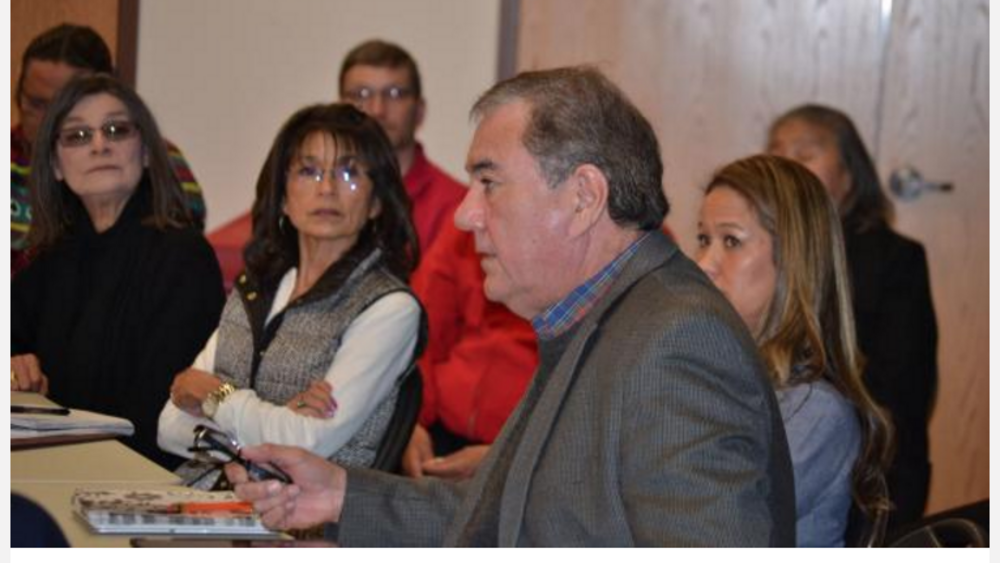
Fluent Osage Speakers are a Priority for Osage Nation
The state of Osage language preservation has reached a critical point and Osage Nation Chief, Geoffrey Standing Bear, just months after his inauguration, is making Osage language immersion a priority. The Chief’s plans include the continued collaboration of the Osage Nation Language Program with…
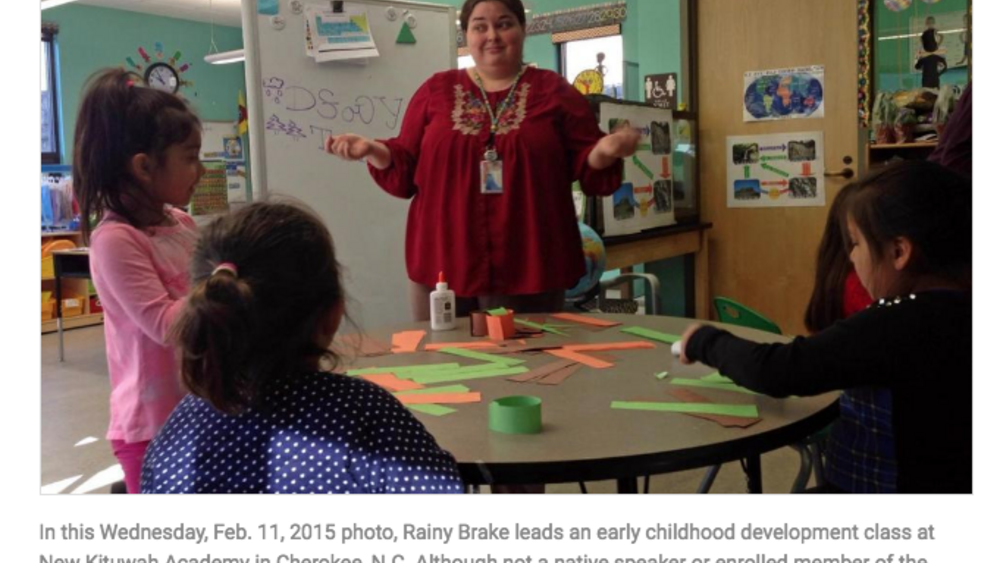
Hopes of preserving Cherokee language rest with children
Kevin Tafoya grew up hearing Cherokee all around him – his mother, a grandmother and grandfather, aunts and an uncle all spoke the language that now is teetering on the edge of extinction. Yet his mother purposely didn’t teach him. “She told us she had a hard time in school transitioning from…
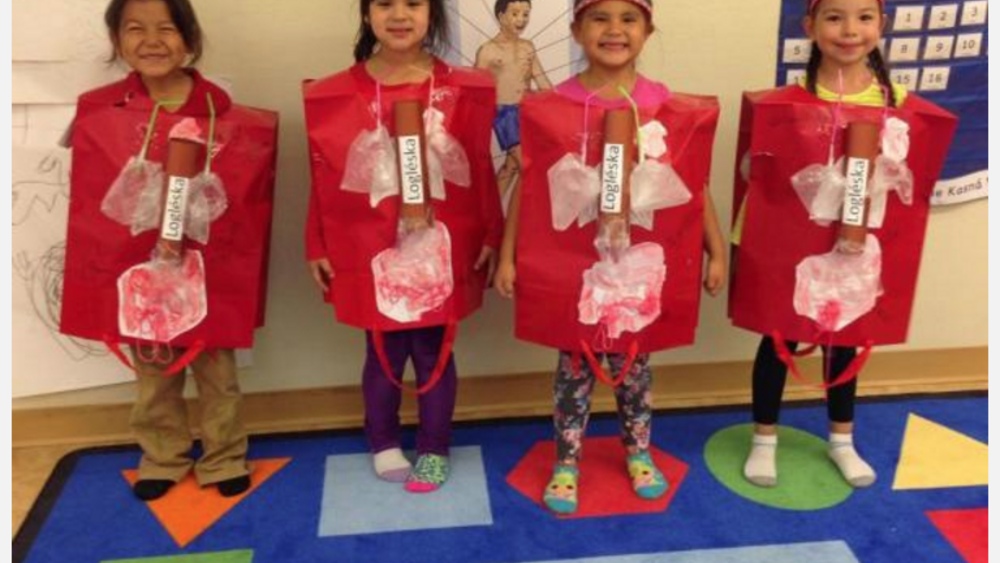
Challenges and Solutions to Keeping the Lakota Language Alive
“There is more to an immersion school than simply bringing in elders and having them teach the children,” said Sunshine Carlow, education manager of Lakȟól'iyapi Wahóȟpi, the Lakota Nest Immersion School on the Standing Rock Reservation in South Dakota...
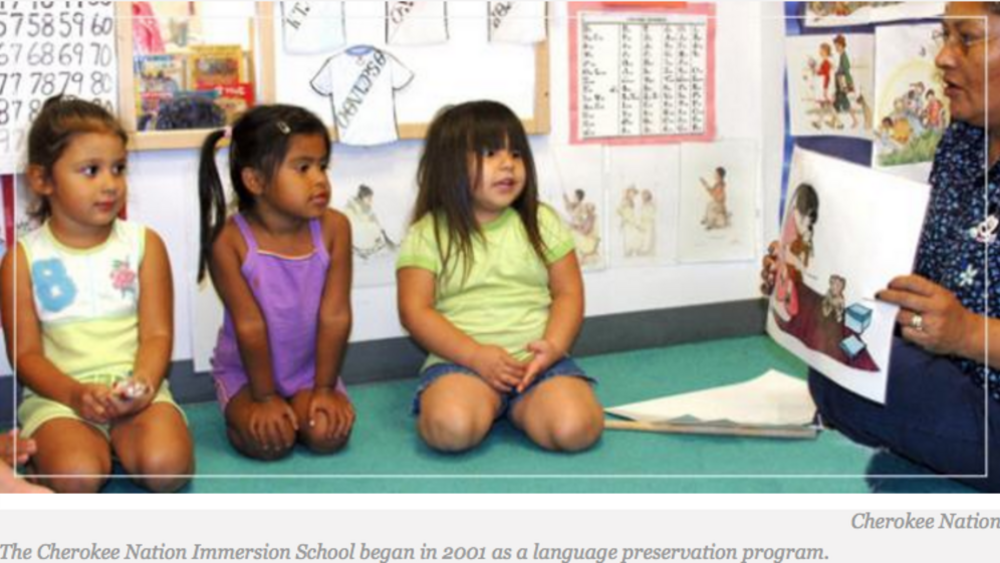
Teaching the Whole Child: Language Immersion and Student Achievement
As Congress considers two bills to support Native American language immersion, including the Native Language Immersion Student Achievement Act, it is time to take stock. What does research say about the impact of Native-language immersion on Native students’ academic achievement? We now have 30…
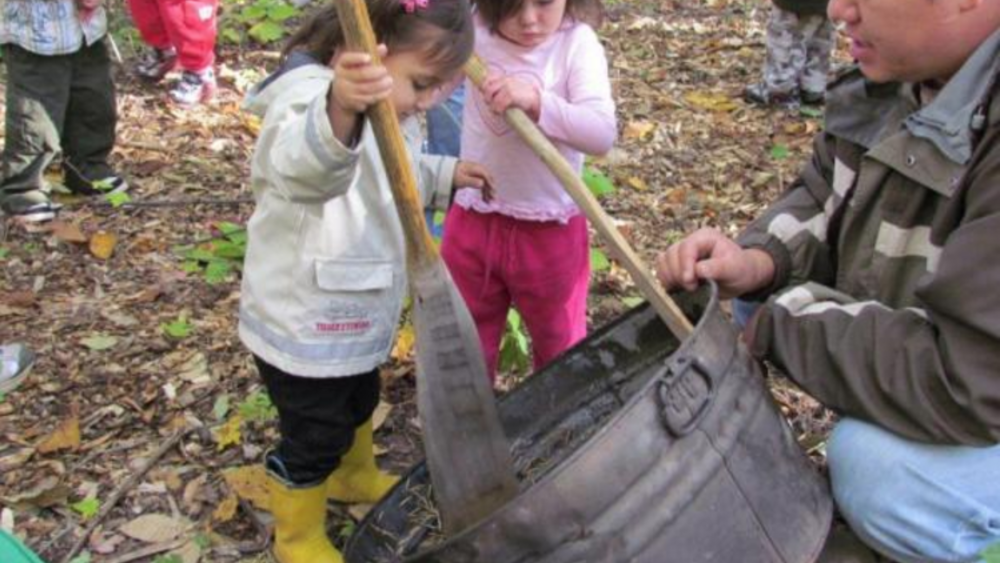
Preserving Culture: 6 Early Childhood Language Immersion Programs
Language immersion schools have proved to be enormously beneficial for young learners’ academics. To quote Dr. Janine Pease-Pretty on Top, Crow, founding president of Little Big Horn College, “Solid data from the Navajo, Blackfeet and Assiniboine immersion schools experience indicates that the…
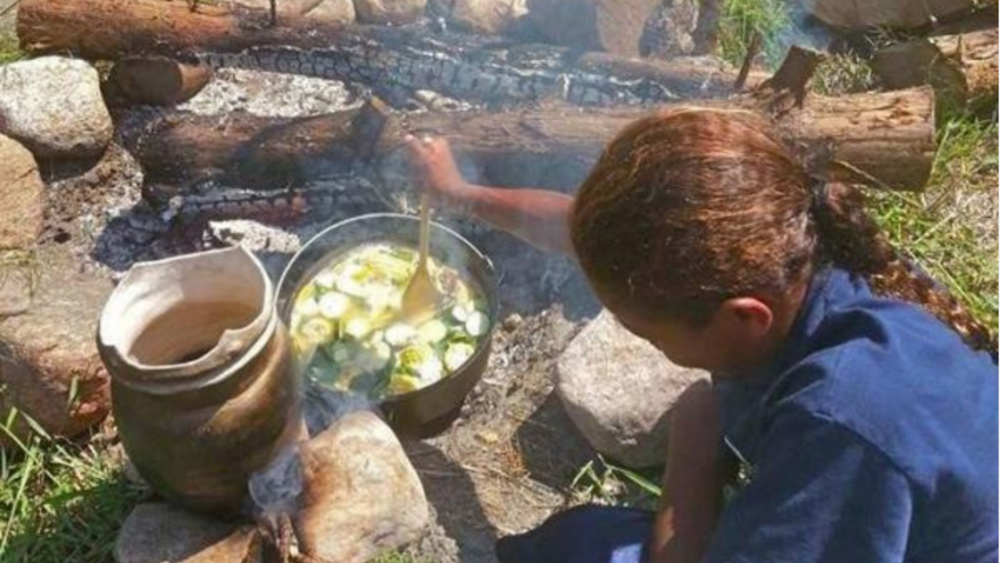
Sleeping Language Waking Up Thanks to Wampanoag Reclamation Project
It’s been more than 300 years since Wampanoag was the primary spoken language in Cape Cod. But, if Wampanoag tribal members keep their current pace, that may not be true for much longer. Tribal members have been signing up for classes with the Wampanoag Language Reclamation Project while families…
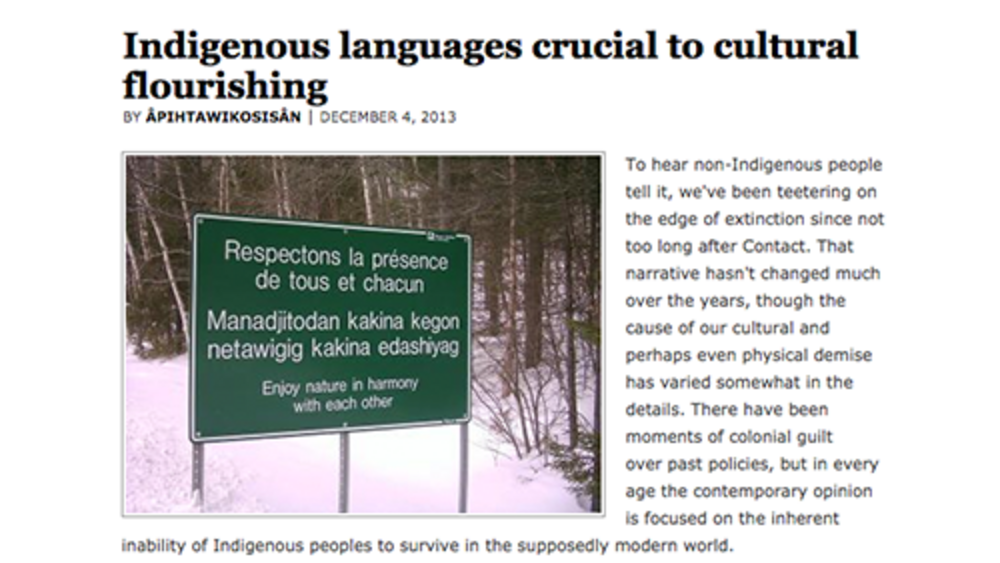
Indigenous languages crucial to cultural flourishing
I believe our languages to be so central to who we are as Indigenous peoples, that I cannot discuss our present or our future without reference to languages. The oppression we have faced, and continue to face, does not define us in the way our languages do. Our resilience, and the fact that we have…
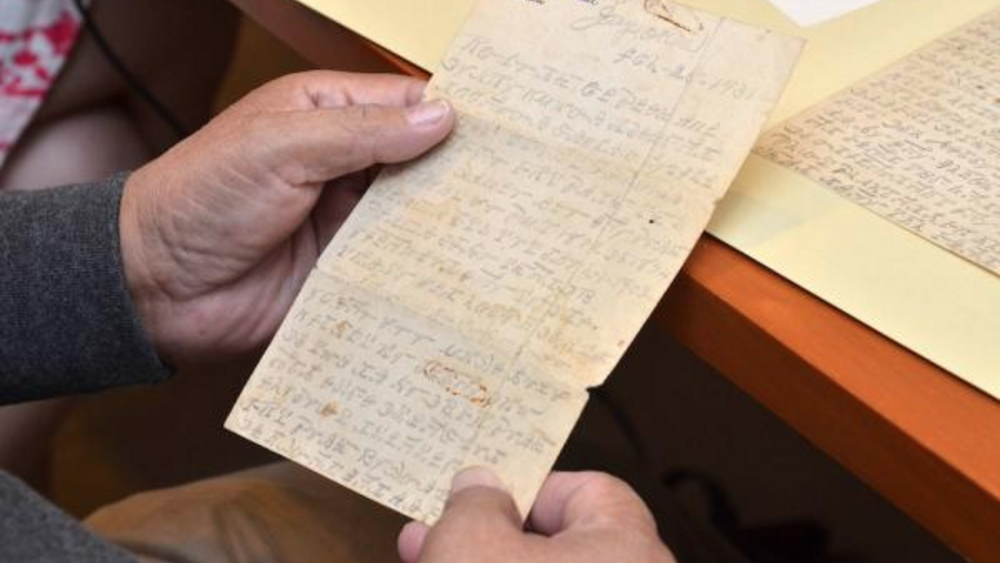
Keeping Language Alive: Cherokee Letters Being Translated for Yale
Century-old journals, political messages and medicinal formulas handwritten in Cherokee and archived at Yale University are being translated for the first time. The Cherokee Nation is among a small few, if not the only tribe, that has a language translation department who contracts with Apple,…
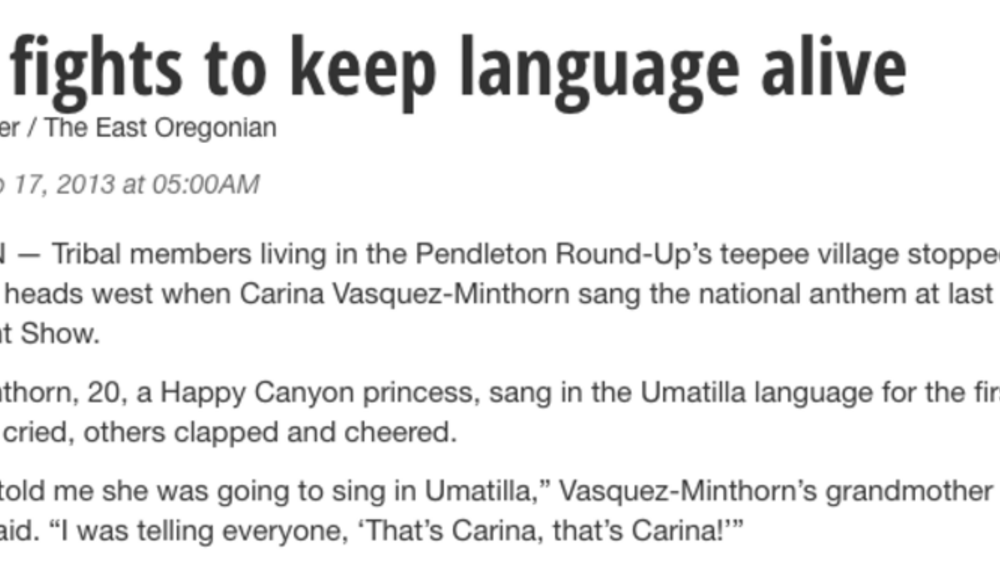
Tribe fights to keep language alive
Tribal members living in the Pendleton Round-Up’s teepee village stopped, listened and peeked their heads west when Carina Vasquez-Minthorn sang the national anthem at last week’s Happy Canyon Night Show. Vasquez-Minthorn, 20, a Happy Canyon princess, sang in the Umatilla language for the first…
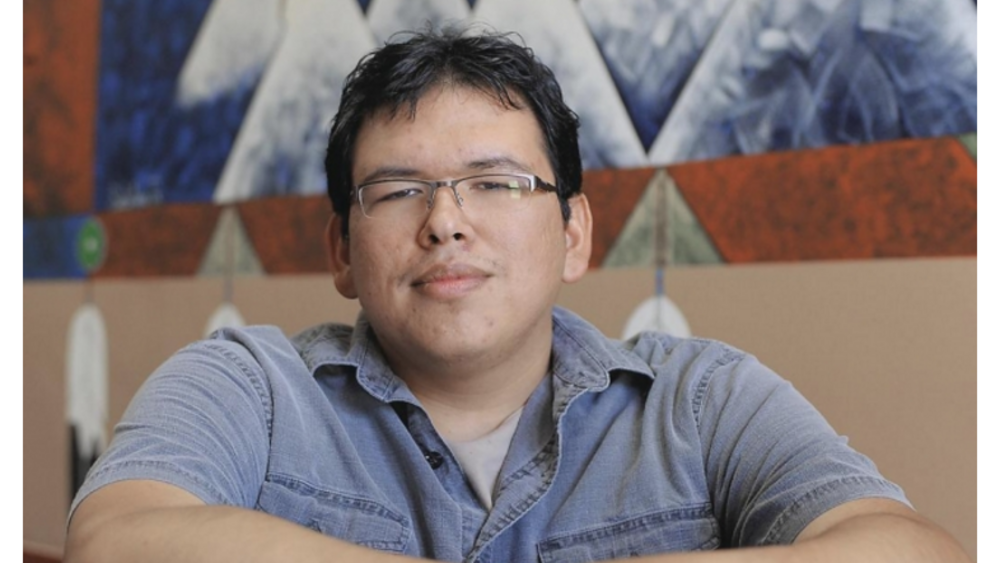
Comanche Nation College Tries to Rescue a Lost Tribal Language
A two-year tribal college in Lawton, Okla., is using technology to reinvigorate the Comanche language before it dies out. Two faculty members from Comanche Nation College and Texas Tech University worked with tribal elders to create a digital archive of what's left of the language. Only about 25…
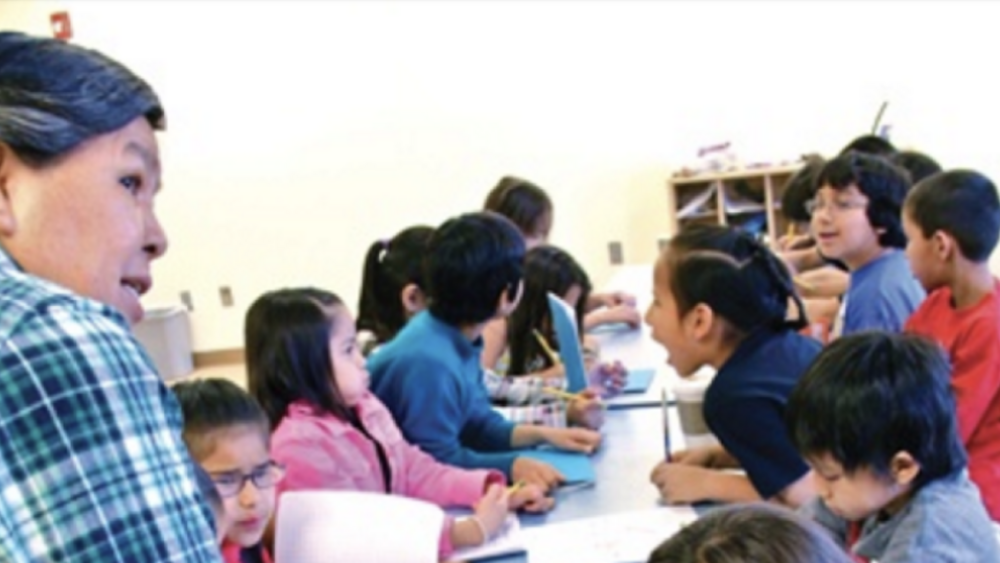
Addressing the crisis in the Lakota language
With only 2 to 5 percent of children currently speaking Lakota, Thomas Short Bull, president of the Oglala Lakota College, said the time has come to raise the alarm. As the day begins at the Lakota Language Immersion School, a young boy passes an abalone bowl of sage to each child sitting on the…
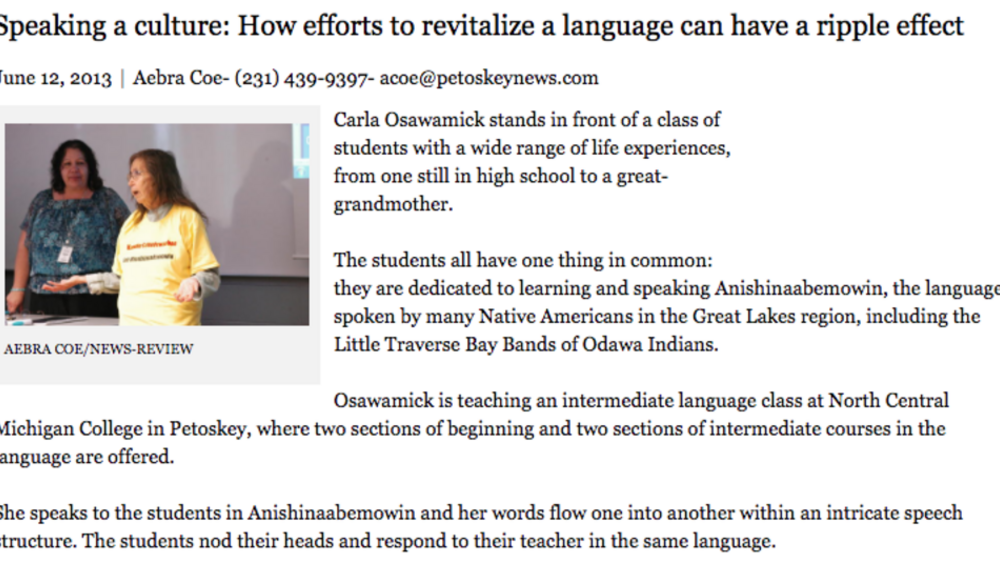
Speaking a culture: How efforts to revitalize a language can have a ripple effect
Carla Osawamick stands in front of a class of students with a wide range of life experiences, from one still in high school to a great-grandmother. The students all have one thing in common: they are dedicated to learning and speaking Anishinaabemowin, the language spoken by many Native Americans…
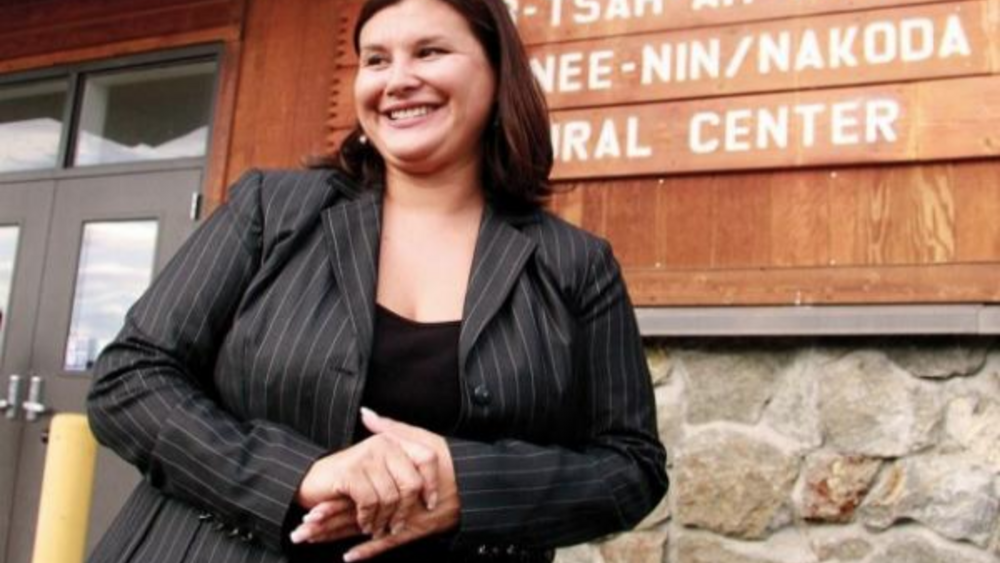
Immersion School is Saving a Native American Language
The White Clay Immersion School on the Fort Belknap Indian Reservation in Harlem, Montana is trying to save the A’ani language. Thanks to the school’s efforts 26 students, a record for the school, are currently studying the Native American language...
